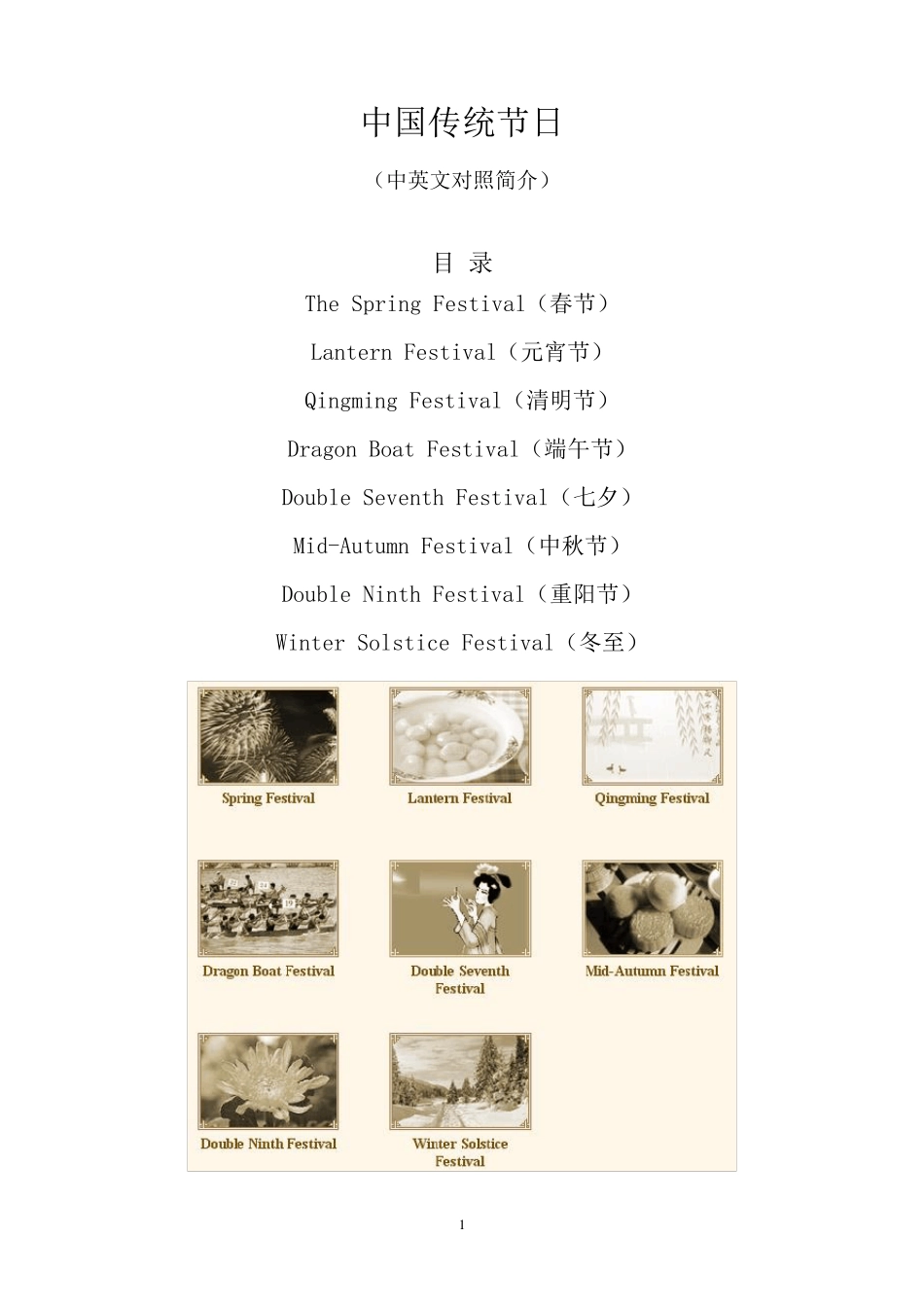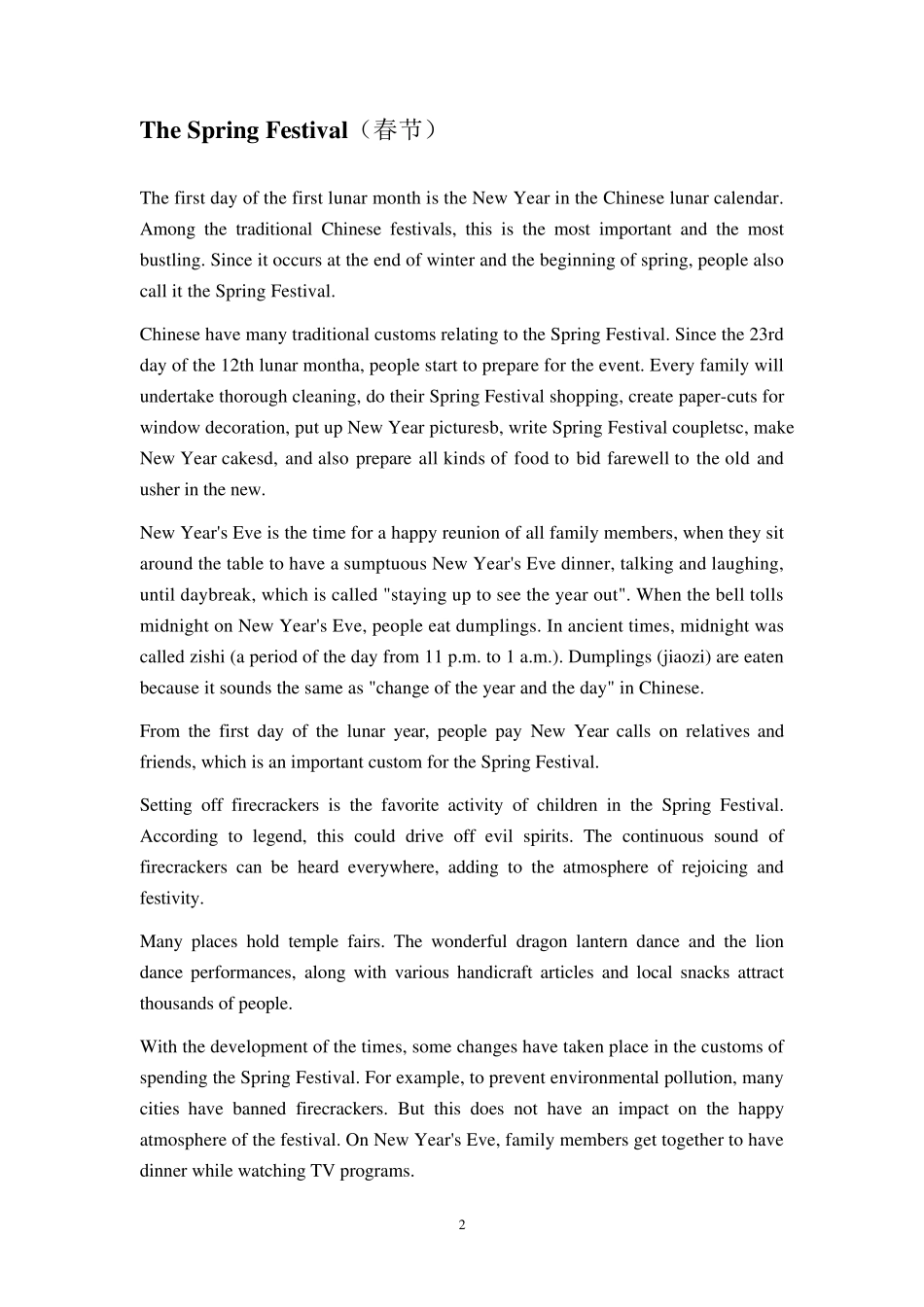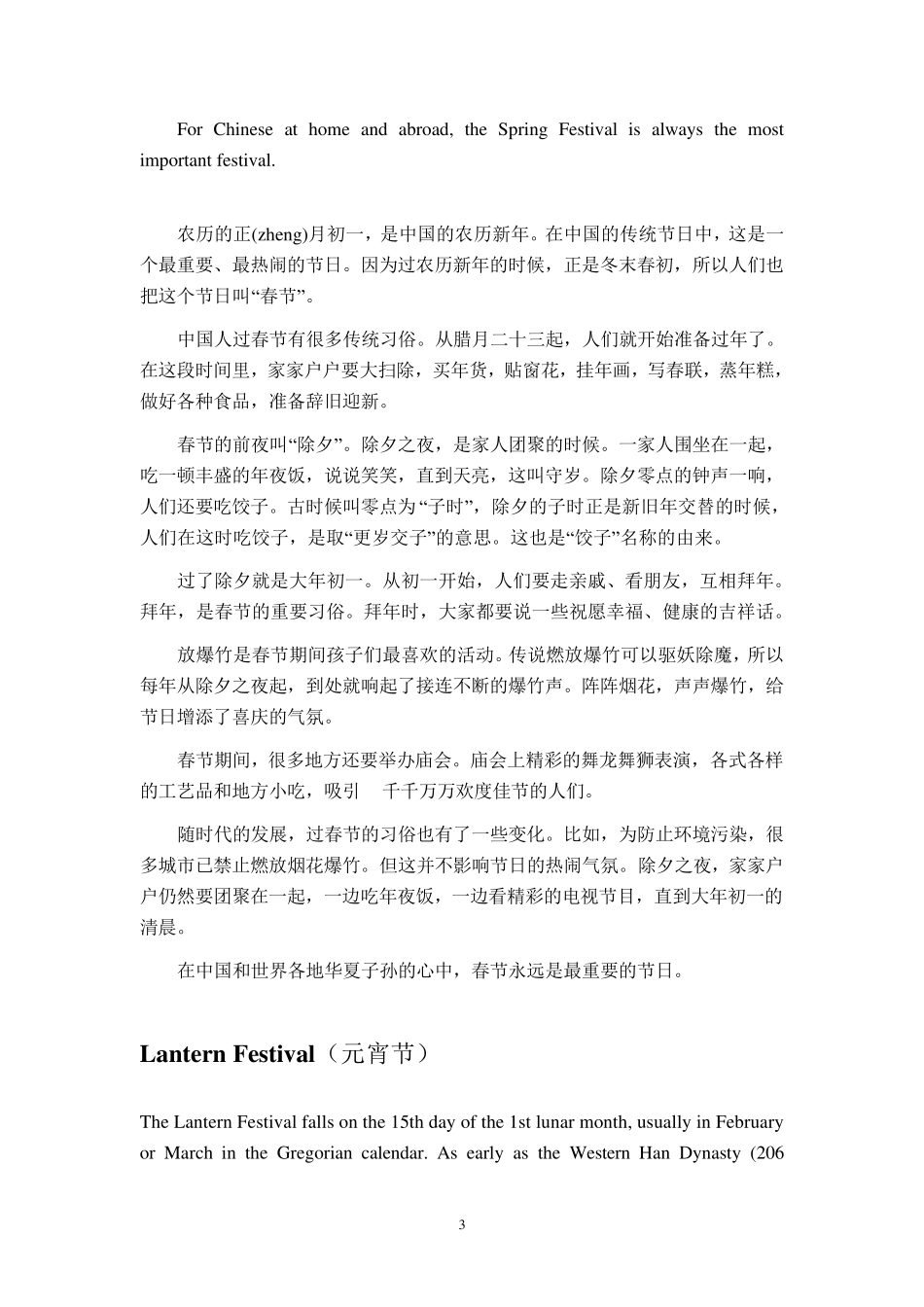1 中国传统节日 (中英文对照简介) 目 录 The Spring Festival(春节) Lantern Festival(元宵节) Qingming Festival(清明节) Dragon Boat Festival(端午节) Double Seventh Festival(七夕) Mid-Autumn Festival(中秋节) Double Ninth Festival(重阳节) Winter Solstice Festival(冬至) 2 The Spring Festiv al(春节) The first day of the first lunar month is the New Year in the Chinese lunar calendar. Among the traditional Chinese festivals, this is the most important and the most bustling. Since it occurs at the end of winter and the beginning of spring, people also call it the Spring Festival. Chinese have many traditional customs relating to the Spring Festival. Since the 23rd day of the 12th lunar montha, people start to prepare for the event. Every family will undertake thorough cleaning, do their Spring Festival shopping, create paper-cuts for window decoration, put up New Year picturesb, write Spring Festival coupletsc, make New Year cakesd, and also prepare all kinds of food to bid farewell to the old and usher in the new. New Year's Eve is the time for a happy reunion of all family members, when they sit around the table to have a sumptuous New Year's Eve dinner, talking and laughing, until daybreak, which is called "staying up to see the year out". When the bell tolls midnight on New Year's Eve, people eat dumplings. In ancient times, midnight was called zishi (a period of the day from 11 p.m. to 1 a.m.). Dumplings (jiaozi) are eaten because it sounds the same as "change of the year and the day" in Chinese. From the first day of the lunar year, people pay New Year calls on relatives and friends, which is an important custom for the Spring Festival. Setting off firecrackers is the favorit...


